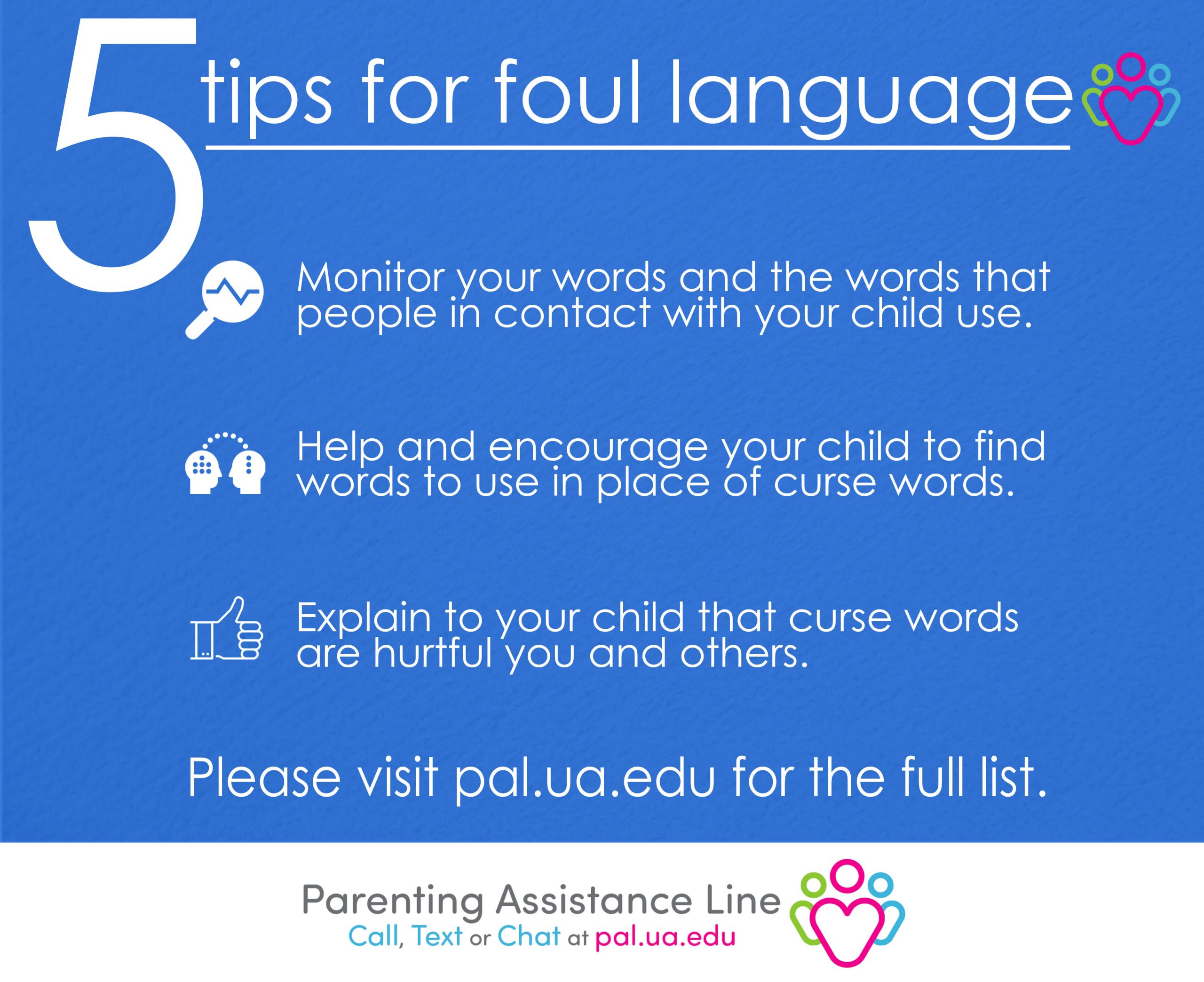Language skills are an important part of your child’s development. As babies, they listen to the way we speak and the tones of our voices. Parents look forward to the day when their little one utters their first word such as “ma-ma,” “da-da” or “bye-bye.” But what happens when your child utters his first “bad” word? How will you respond?
The following tips can help you turn foul language into positive words:
- Monitor your words and the words that people in contact with your child use – Your child will look to you for guidance and understanding from the moment that he is born. It is important that positive and appropriate words are used so that your child will know how to properly express himself.
- Explain to your child that curse words are hurtful – Explaining to your child that curse words can be hurtful to people may help him understand the importance of using positive words.
- Help and encourage your child find words to use in the place of curse words – Silly words or made-up words can be fun for children and can be helpful for adults who are guilty of using foul language as well. If your child is using foul language to get your attention, ignore this behavior and model appropriate words for your child.
- Avoid using extreme techniques to punish your children for foul language – Communicating with your child about the importance of using good choices when speaking will encourage him to use words that are positive and appropriate. Let your child know why foul language is not permitted in your home and the consequences for such behavior.
- Reward your child for using “kind” words – Avoid concentrating on the foul words that your child may have picked up along the way. Remember to thank him for using kind words when you hear them, and let him know how proud you are that he can express himself in a positive way.







